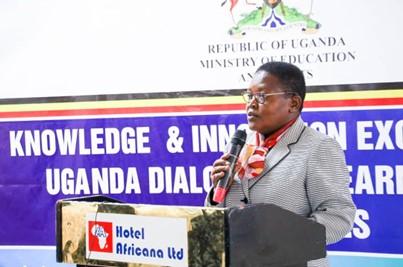
The KIX Uganda Dialogue on Learners with Disabilities was organized by the Ugandan Ministry of Education and Sports (MoES) and KIX Africa 19 hub, through the UNICEF Regional Office for Eastern and Southern Africa (ESARO) on April 5, 2023 in Kampala, Uganda. The event brought together more than 140 representatives from government, educational institutions and disability organizations. The purpose was to learn more about Uganda’s disability-inclusive education policies and practices. This is the fifth KIX National Dialogue since KIX Africa 19 hub’s inception.
Madame Commissioner for Special Needs Education in Uganda, Sarah Bugoosi Kibooli, opened the meeting by sharing the objectives and her hopes for the dialogue, followed by welcoming remarks from Dr. Quentin Wodon, Director of UNESCO IICBA; Dr. Munir Safieldin, UNICEF Uganda Representative; Ms. Ketty Lamaro, Permanent Secretary of Education and Sports; and Hon J.C. Muyingo, Minister of Higher Education. They strongly encouraged collaboration among the stakeholders and immediate action to strengthen inclusive education.
In line with the dialogue’s strong focus on mainstreaming disability-inclusive education, the dialogue featured simultaneous interpretation into sign language for participants requiring sign language.
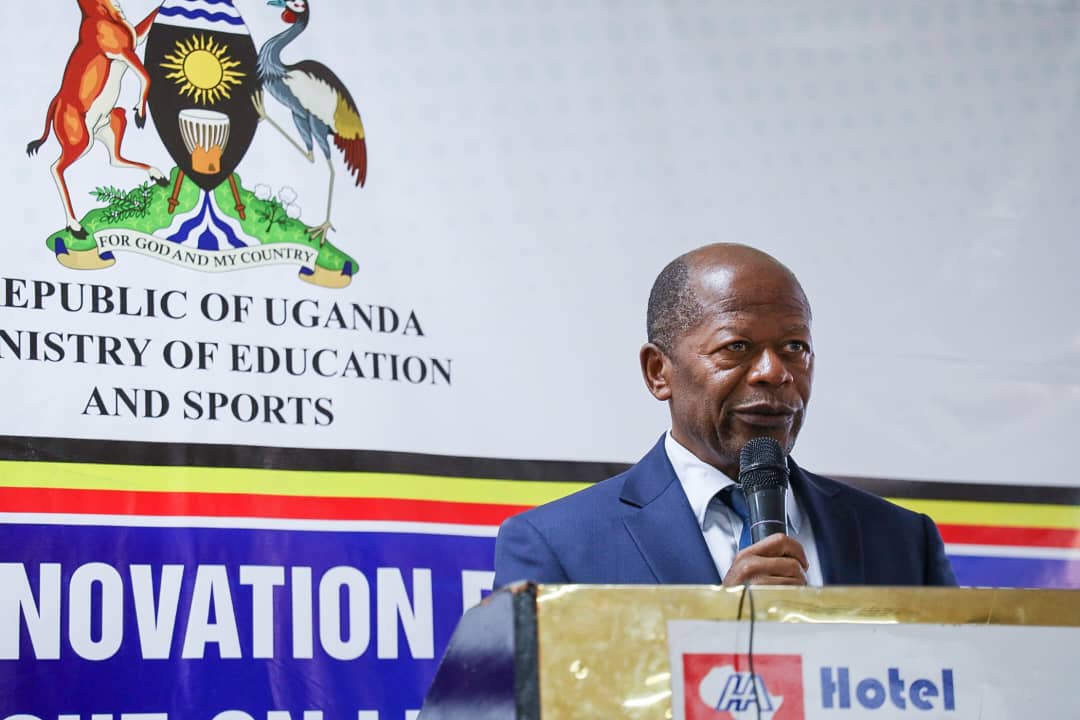 Hon J.C. Muyingo, Minister of Higher Education
Hon J.C. Muyingo, Minister of Higher Education
Hon J.C. Muyingo, Minister of Higher Education, reminded the audience that the Constitution of the Republic of Uganda guarantees the right to education for all. He also highlighted that Uganda is one of the few countries that ensures special representation of individuals with disabilities in Parliament and all Local Councils. Ms. Ketty Lamaro, Permanent Secretary of Education and Sports, shared four commitments by the Ugandan Ministry of Education and Sports following the World Summit on Disability; i) implementing technologies for learners with disabilities and a functional assessment tool in all schools by the end of 2023, ii) renovating and reviving three additional regional Educational Assessment Resource centers (EARS) by 2024, iii) conducting Teacher capacity building sessions in special needs education including specialized pedagogy, distribute specialized teachers equitably across all Local Governments and supply more specialized materials and devices to learners with disabilities, based on a needs assessment, by 2024, iiii) amending the criteria for assessing students with disabilities under the quota system in line with the People with Disabilities Act 2020 by 2023.
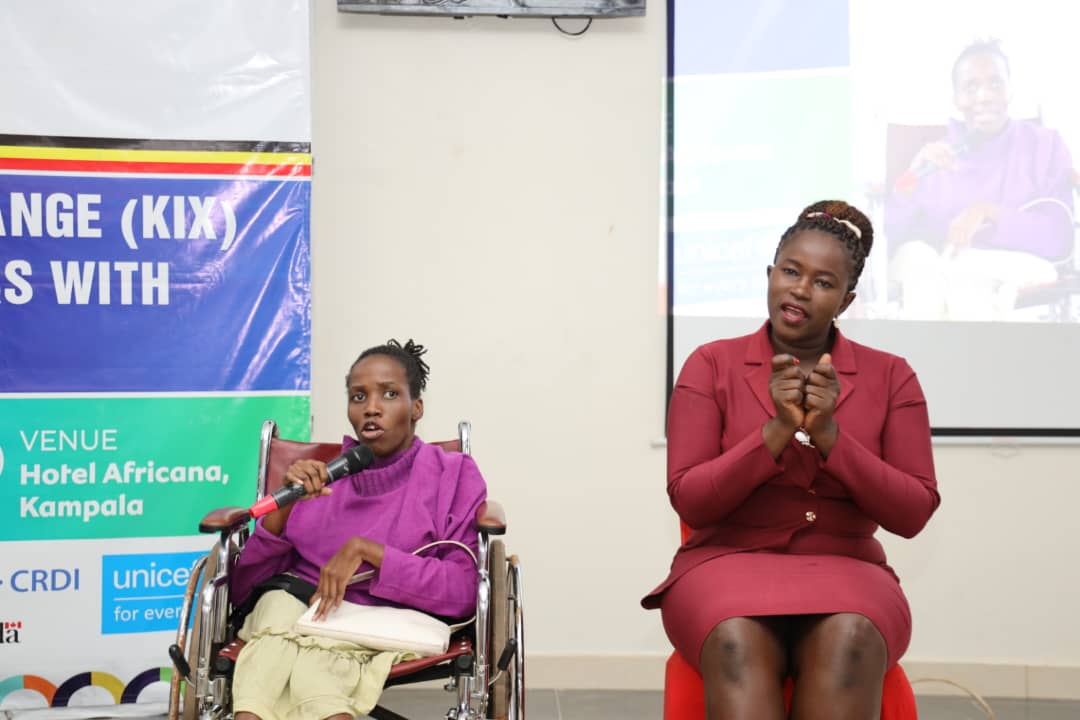 Ms. Mary Awino Hope (Kyambogo University) (left) (Sign language interpreter on the right.)
Ms. Mary Awino Hope (Kyambogo University) (left) (Sign language interpreter on the right.)
Mary Awino Hope shared her experience as a university student with disability. She stated that she spent three years in university without meaningful attention and appropriate facilities and environment to support her to learn. This forced her to seek admission in another institution and although she eventually completed her studies, she stated she had to endure numerous challenges in accessing learning materials and individualised support while at the university. Mary emphasised that there are still many barriers to education today for people with disabilities and that it is important to give them audience in order to properly understand and respond to their learning needs.
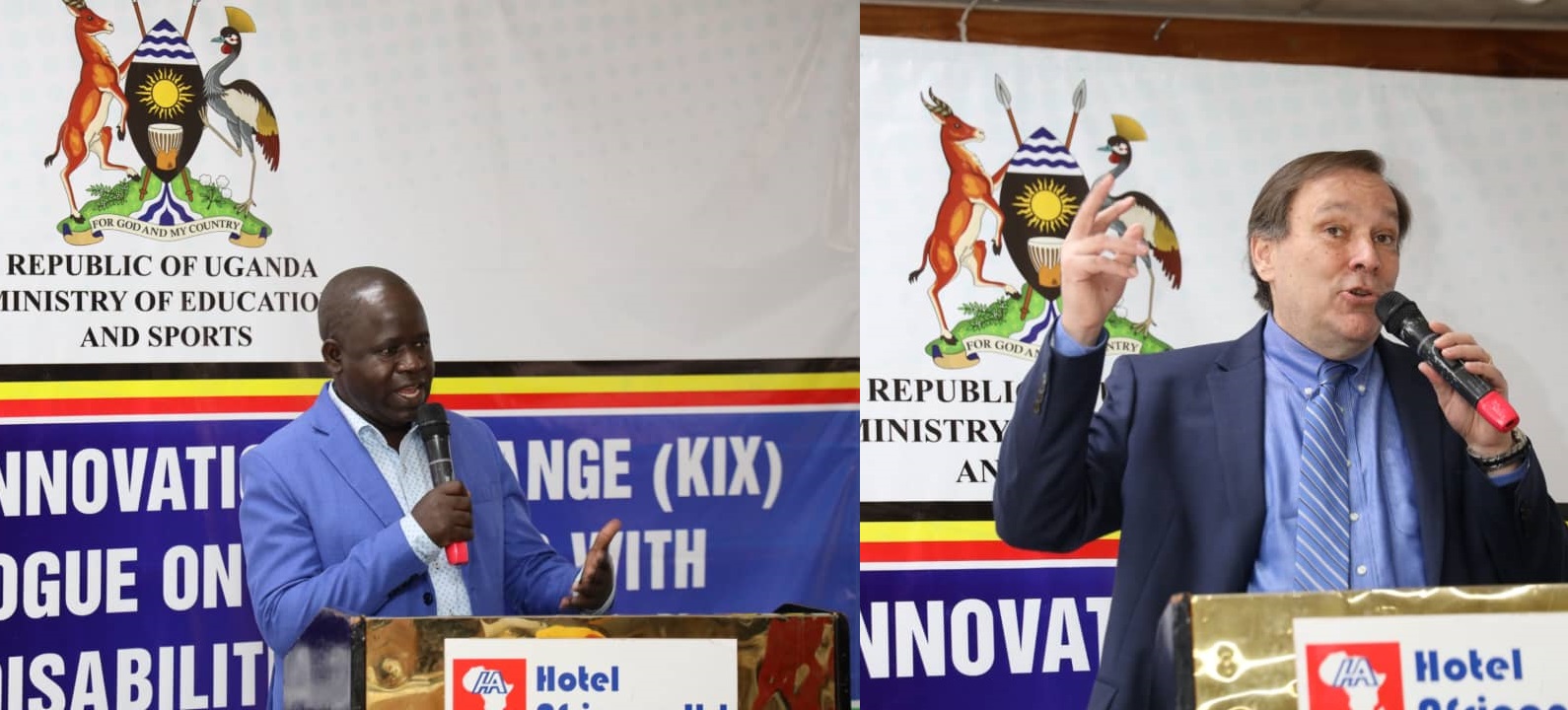 Dr. Ojok Patrick of Kyambogo University (left) and Dr. Quentin Wodon, Director of UNESCO IICBA (right)
Dr. Ojok Patrick of Kyambogo University (left) and Dr. Quentin Wodon, Director of UNESCO IICBA (right)
The event provided decision makers and stakeholders a platform to discuss the current state and challenges of implementing disability-inclusive education policies and curricula, and subsequently to identify solutions for increasing access to inclusive education for students with disabilities. The morning session included presentations from organizations such as the Ministry of Education and Sports, UNESCO IICBA, UNICEF ESARO, and Ugandan universities (please check the PowerPoint if you want to learn more). The presentations acknowledged both the existing educational policies for students with disabilities in Uganda as well as challenges in the implementation. The challenges include lack of student data, inadequate teacher training for special needs education, accessibility issues, insufficient budget allocation for inclusive education, and negative attitudes toward students with disabilities.
Dr. Ojok Patrick of Kyambogo University presented policy changes for students with disabilities in Uganda, including the repeal of the Disability Act of 2006 and budget cuts and stated that the Ministry of Education and Sports is currently developing a National Inclusive Education Policy. Dr. Wodon, Director of UNESCO IICBA, presented data showing that returns on investments in education are almost the same for students with and without disabilities. However, there are significant differences in school completion between students with and without disabilities, with girls with disabilities at the highest risk as of census time. To address these challenges, he emphasized that it is important to document this data, arguing that investing in education for children with disabilities can strengthen societies and economies, starting with interventions based on best practices.
 Ms. Yetneberesh Nigussie Molla, Programme Specialist from UNICEF ESARO (left) and Dr. Pamela Nizeyimana, Mountains of the Moon University (right)
Ms. Yetneberesh Nigussie Molla, Programme Specialist from UNICEF ESARO (left) and Dr. Pamela Nizeyimana, Mountains of the Moon University (right)
Ms. Yetneberesh Nigussie Molla, a Programme Specialist from UNICEF ESARO that there are 28.9 million children with disabilities in East and Southern Africa and out of this, 49% do not attend school. She emphasized the need for inclusive education in mainstream schools, reform of the national legal framework and increased accountability for inclusive education, clear cost plans, data collection, early identification, and awareness of disabilities to overcome negative attitudes.
Dr. Nizeyimana, a lecturer at the Mountains of the Moon University, and a person living with a disability, highlighted that barriers to inclusive education include negative attitudes towards children with disabilities as these causes isolation and abandonement for children with disabilities. Additionally, she pointed out that physical and communication barriers further exacerbate the challenges faced by 2.8 million children with disabilities in Uganda, citing an example of a child with hearing impairments who was unable to participate in classroom activities because the teacher couldn’t support him with sign language. She strongly emphasized the need to remove these barriers to strengthen inclusive education in Uganda.
Useful Resources
- Presentations from the Uganda dialogue
- Persons with Disabilities Act of 2020.
- Mapping and Recommendations On Disability-Inclusive Education inEastern and Southern Africa
- Regional study on the fulfillment of the right to education of children with disabilities
- Global Report on Children With Disabilities
- The recording of the event: part 1, part 2 and part 3
The afternoon session was an active exchange on four key topics: data collection, teaching/learning and learning assessment, identification and assessment, and reasonable accommodations for children with disabilities. The practical solutions shared by participants were noted and documented in the action points listed below:
- There is strong need to address the inaccessibility of school facilities.
- Access, participation, achievement, and transition issues require attention.
- The current teacher training model, and teacher deployment practices must ensure all schools have specialist teachers.
- The teacher-pupil ratio must be improved as inclusion is not feasible in overcrowded classrooms.
- Financing models must be reformed to cover all levels of education where children with disabilities are enrolled.
- The government needs to create a contextualized approach to inclusive education, such as by , issuing guidelines for the placement of learners with disabilities in the different types of schools in Uganda
- Disability-inclusive data collection, analysis, storage and management must be strengthened to facilitate evidence-based planning and advocacy.
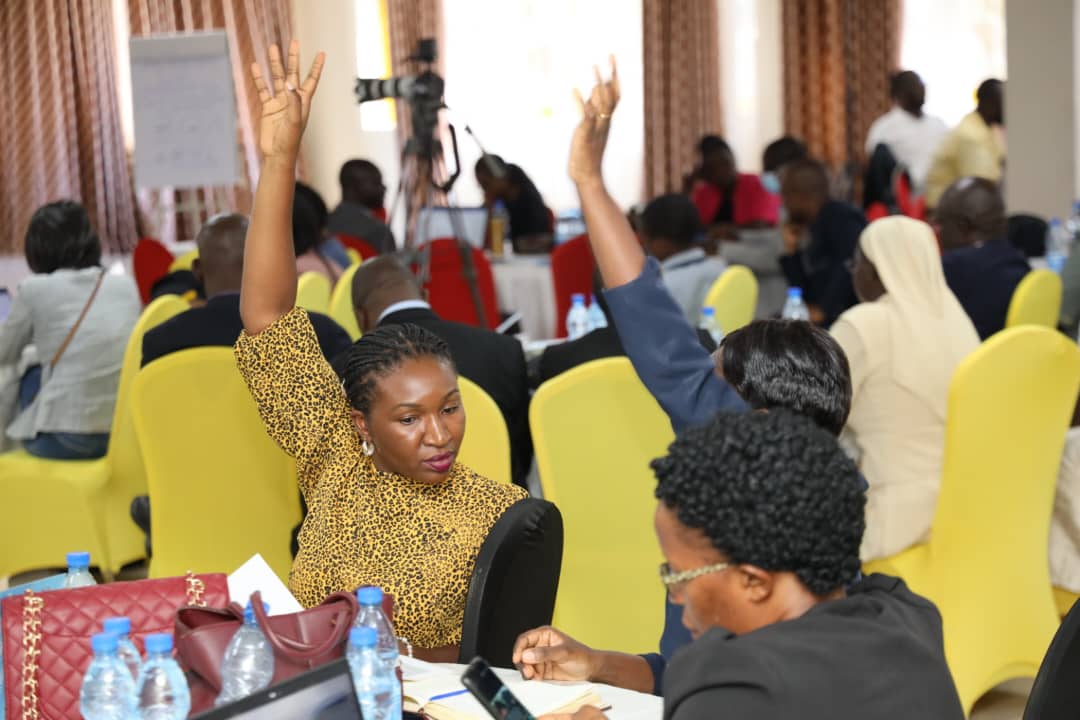
The event was concluded with specific action points to guide the next steps in strengthening inclusive education in Uganda.
To watch the full recording of the event, click here for part 1, here for part 2 and here for part 3. To learn more about the KIX Africa 19 Hub, check out our website and follow our activities on Twitter.
